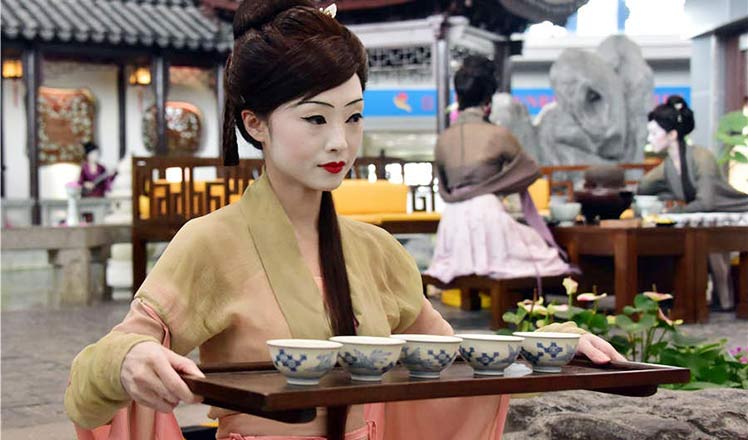Immigration ruling affects 70,000 Chinese
Updated: 2016-06-27 23:26
By PAUL WELITZKIN in New York(China Daily USA)
|
||||||||
Last week's tie vote at the Supreme Court on immigration effectively ended President Barack Obama's efforts to selectively protect some undocumented immigrants from being forced out of the country, and affects approximately 70,000 Chinese immigrants in the US, observers said.
The 4-4 high court vote on June 23 affirmed a lower-court ruling that blocked Obama's 2014 plan to shield millions of undocumented immigrants from deportation and give them the right to work legally in the US. One of the president's programs— known as Deferred Action for Parents of Americans and Lawful Permanent Residents (DAPA) — was introduced in 2014 and granted deferred action status to some undocumented immigrants who have lived in the US since 2010 and have children who are either American citizens or lawful permanent residents.
The other program — Deferred Action for Childhood Arrivals (DACA) — was introduced by the administration in 2012 and allowed some illegal and undocumented immigrants who entered the country before their 16th birthday and before June 2007 to get exemption from deportation and a renewable two-year work permit.
Michelle Mittelstadt, a spokesman for the Migration Policy Institute, said her organization estimates about 68,000 unauthorized immigrants from China could be eligible for the DAPA program and about 5,000 could be eligible for the DACA program.
"Approximately 400,000 Asians were affected, and approximately 70,000 of those were Chinese. This is specifically the population that is eligible for DAPA as well as the 2014 expansion of DACA," New York immigration attorney Jae Lee wrote in an email.
Lee said that group's legal options are limited.
"Since this population is, by definition ‘out of status' with no current path to legalization, all it can do is wait. If they return to their home countries, they would be barred from re-entry for up to 10 years. However, certain people may become eligible for ‘adjustment of status' simply with the passage of time. Undocumented parents can wait until their children turn 21, and undocumented children of ‘lawful permanent residents' can wait until their parents become US citizens, at which point they can be sponsored for permanent residence. However, this is assuming they can avoid deportation in the meantime," said Lee.
Annie Wang, a staff attorney with the Asian American Legal Defense and Education Fund, said in an email that Chinese immigrants should "…consult with reputable immigration attorneys or nonprofit legal service providers that can evaluate whether they qualify for an immigration benefit (for example, visa for trafficking or domestic violence survivors) or another form of immigration relief. They need to be on the alert for immigration scams or fraud."
The high court ruling will likely elevate the immigration issue in the fall presidential election observers said.
"The Supreme Court's tie raises the political importance of immigration in the presidential election. Democratic presumptive nominee Hillary Clinton has said that if she is elected president, she would do even more than Obama to give undocumented children and parents a temporary reprieve from deportation.
Republican presumptive nominee Donald Trump will "latch onto the Supreme Court's tie as authority for his assertion that Obama has already gone too far in pushing the executive action envelope instead of trying to work with Congress," Stephen Yale-Loehr, an immigration law professor at Cornell University in Ithaca, New York, said in a statement.
Lee said it remains to be seen whether immigration will motivate Asian or Chinese voters.
"The next president will not only decide whether to continue and or expand the Obama deferred-action programs, but will most likely appoint the tie-breaking justice of the Supreme Court on this issue. However, it remains to be seen whether Asian voters will coalesce into a powerful voting bloc around this issue, like the Latino community," Lee wrote in an e-mail.
The Migration Policy Institute's Mittelstadt said "…it is unclear whether the Supreme Court's decision will motivate Chinese and Asian communities and voters to take new or different political stances in the presidential election."
paulwelitzkin@chinadailyusa.com
- Hillary Clinton boasts double-digit lead over Trump: poll
- First New York Pride March since Orlando shooting targets gun control
- Intl experts question proceedings of South China Sea arbitration
- South China Sea tribunal has no legal validity
- Cambodia positions itself along new Silk Road: media
- UK opposition leader Corbyn says will not resign after Brexit vote

 The world in photos: June 20-26
The world in photos: June 20-26
 Panama Canal opens with Chinese ship making first passage
Panama Canal opens with Chinese ship making first passage
 Eco-friendly farming system introduced to NE China
Eco-friendly farming system introduced to NE China
 UK votes to LEAVE the EU in historic referendum
UK votes to LEAVE the EU in historic referendum
 Aussie Ben Simmons picked by 76ers as No 1 in NBA Draft
Aussie Ben Simmons picked by 76ers as No 1 in NBA Draft
 Ancient scroll's digital art show staged in Beijing airport
Ancient scroll's digital art show staged in Beijing airport
 University students go underwater to celebrate graduation
University students go underwater to celebrate graduation
 Ten photos from around China: June 17 - 23
Ten photos from around China: June 17 - 23
Most Viewed
Editor's Picks

|

|

|

|

|

|
Today's Top News
Abe's blame game reveals his policies failing to get results
Ending wildlife trafficking must be policy priority in Asia
Effects of supply-side reform take time to be seen
Chinese State Councilor Yang Jiechi to meet Kerry
Chinese stocks surge on back of MSCI rumors
Liang avoids jail in shooting death
China's finance minister addresses ratings downgrade
Duke alumni visit Chinese Embassy
US Weekly

|

|








